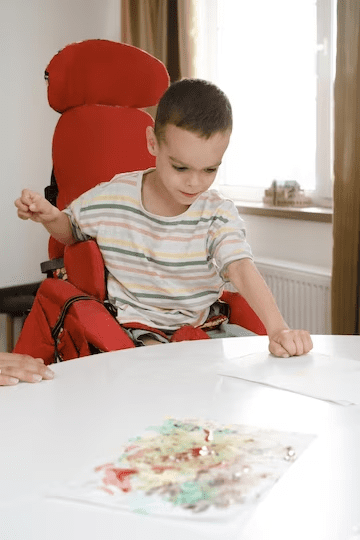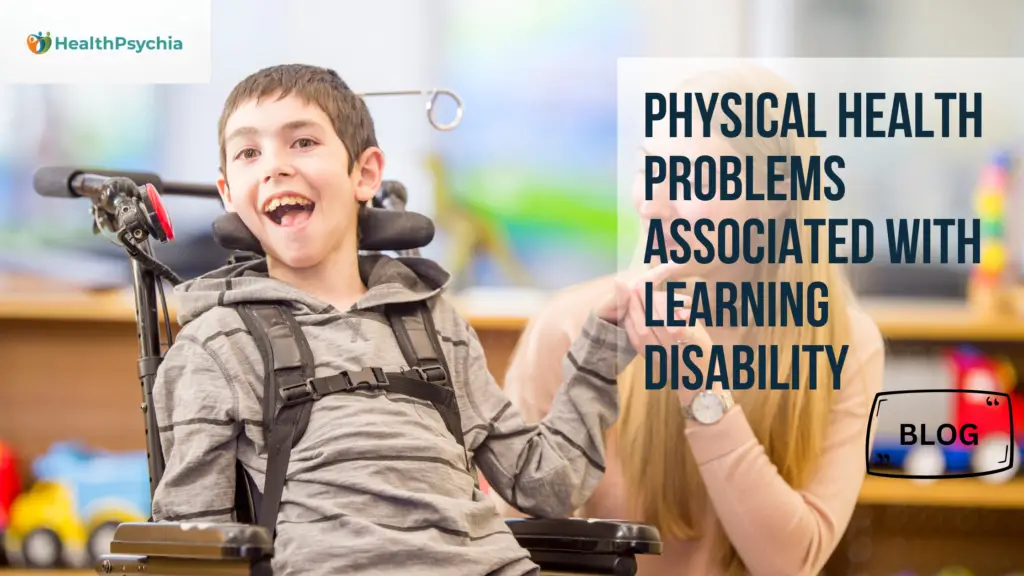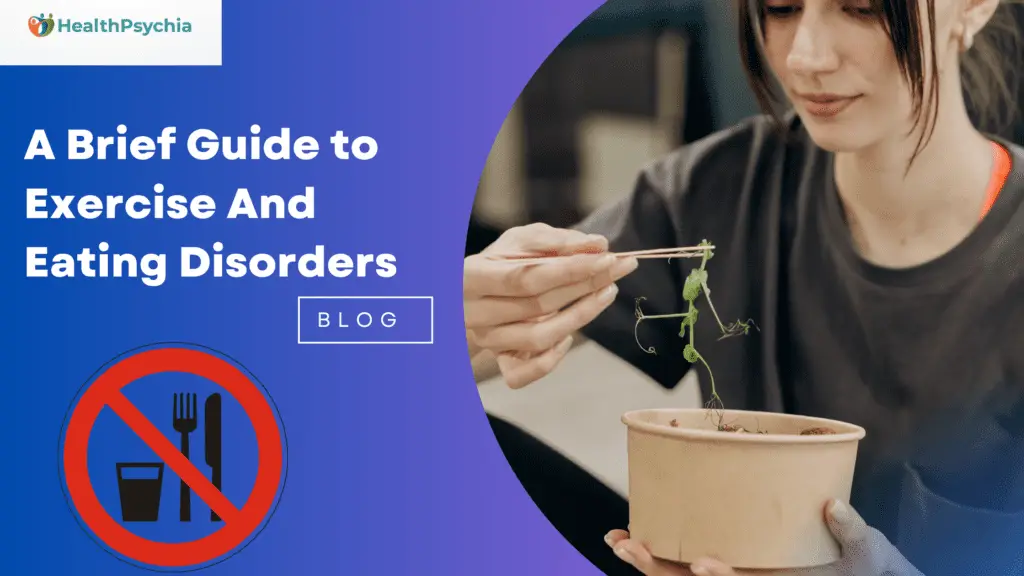Women with learning disability have an almost 18 years shorter life span compared to women in general. While men with learning ability have 14 years shorter life span compared to men in general. Studies reveal that people with learning disabilities have more mental and physical problems compared to those who are without these disabilities.
A learning disability is a mental condition in which the brain of a person does not work in the normal way. People with learning disabilities feel hard to learn, comprehend, and recollect information. They often face issues in maintaining self-care and following daily routines.
Since they also face communication issues, their health concerns often remain unmet and unrecognized. This condition also develops secondary mental and physical issues. Due to this, people with learning disabilities have poor overall health, limited access to healthcare centers, and sometimes physical inactivity.
In this article, we will discuss what are the common physical health conditions associated with learning disabilities and why people with learning disabilities face more mental and physical problems than the general population. Furthermore, before concluding the article, we will give some recommendations to treat people with learning disabilities.

What Do They Suffer From?
People with learning disabilities most face issues of serious mental problems, Epilepsy, and the issues of being overweight or underweight. They also face the issues of obesity, osteoporosis, gastro-oesophageal reflux (GOR), and hearing problems.
Studies also reveal that there are three common causes of the death of people with learning disabilities. These three are heart problems, chest infections, and upper GI malignancies. Some primary and secondary physical health conditions associated with learning disabilities are given below.
Common Health Conditions Associated with Learning Disabilities
Mental Health Problems
According to the Gloucestershire Health & Care NHS Foundation Trust, Mental problems are more common in people with learning disabilities compared to the general population. Psychiatric disorders like depression, stress, anxiety, dementia, and schizophrenia are prevalent among people with learning disabilities.
Studies conducted in 2018 showed that psychiatric disorders were 8.4 times more prevalent in people with learning disabilities compared to normal people.
A study revealed that more than 55% of patients with learning disabilities, particularly children, were diagnosed with serious mental problems.
Patients with intellectual abilities particularly those with mental issues are often unrecognized, overlooked, and left without or poor treatment because of the lack of their communication skills.
Epilepsy
According to reports of the Gloucestershire Health & Care NHS Foundation Trust, patients with learning disability have a 25%-35% chance of epilepsy than 1%-2% of those without.
Studies conducted by the Gloucestershire Health & Care NHS Foundation, adults with intellectual disabilities are more vulnerable to epilepsy compared to the aged. Epilepsy is also less common in men than women, particularly in those men who have serious mental impairment.
Being Underweight or Overweight
Studies conducted by the Gloucestershire Health & Care NHS Foundation Trust, another common physical health issue for patients with learning disabilities is the problem of being overweight or underweight.
Most people with learning disabilities are obese. Among these almost 55% are men while 75% are women.
Most obese patients are adults, especially those with Prader-Willi syndrome and Downs syndrome. Most people with learning disabilities are underweight due to drinking and eating problems. Therefore PEG feeding is common in these people.
Secondary Physical Health Conditions Associated with Learning Disability
Patients with learning disability have multiple primary and secondary health problems. Some secondary health problems are physical immobility because of mental and spinal cord injury, serious bladder issues, and spina bifida.
Stress, fatigue, pain, and digestive issues like ulcers are also secondary health issues.

More Physical Health Issues Than The General Population
According to the researchers, the six common reasons why people with learning disabilities have more physical and mental health problems. These are:
Lack of Communication
People with intellectual disabilities often lack communication abilities. They often find it difficult to conceive and understand the information. Due to this, most of their health needs remain undiagnosed, and left without treatment.
According to the Gloucestershire Health & Care NHS Foundation Trust, 70 % to 90% of persons with learning disabilities have severe communication difficulties. The difficulty in communication may result in social dissociation, self-harm, depression, and anxiety in them.
Healthcare Barriers
Another common reason is the healthcare barriers. Patients suffering from learning disability have limited access to healthcare centers. Even if they become successful in accessing the health care workers, they are generally overlooked.
Gloucestershire Health & Care NHS Foundation Trust, the health needs of people with intellectual disabilities are often diagnosed and left treated because of the busy schedules of the health practitioners. This condition leads to the development of social dissociation, fear, and anxiety in the patients.
Lack of Proper Nutrition
Lack of adequate and appropriate nutrition is also a leading cause of multiple physical and mental problems. It is reported that less than 12% of people with learning disabilities have proper nutrition. They generally do not eat fruits and vegetables and have limited access to a balanced diet.
Most of these patients are obese because of their improper diet while many are underweight because they have eating problems such as swallowing issues, feeding problems, and malabsorption.
Lack of Exercise
Numerous studies conducted by the Gloucestershire Health & Care NHS Foundation Trust, more than 80% of this community do not pay heed to physical activities. They lack exercise which results in joint issues in them.
Moreover, they have limited access to participate in physical activities or sports; they have fewer opportunities, poor staffing, and often financial issues. This often results in boredom, stress, apathy, and physical immobility in them.
Inappropriate Medication
Inadequate medication and polypharmacy review are often recognized among people suffering from learning disability. According to the researchers, medication is inappropriately prescribed and poorly reviewed. This may result in drug intolerance and side effects in people with intellectual disabilities.
Associated Syndromes
Another common reason is the associated syndromes such as Prader-Willi syndrome and Downs syndrome. Down syndrome is the leading cause of various mental and physical problems.
Cardiovascular problems, liver issues, obesity, poor sight and hearing, severe respiratory problems, and dementia are common physical and mental issues because of Down Syndrome.
Healthcare Recommendations
There are some recommendations suggested by healthcare researchers which may help to treat people with learning disabilities.
Annual Health Checks
Regular health check-ups of patients with learning disabilities are very important. The annual regular checks help in the early detection of previously unrecognized physical and mental health problems.
Gloucestershire Health & Care NHS Foundation Trust viewed the annual health checks as the core of the treatment for the people with learning disabilities because they help in the effective treatment of the patients. Furthermore, these checks help in the formulation of healthcare policies and preventive measures for mentally disabled patients.
In this regard, every healthcare center should follow the step-by-step guide for GPs undertaking annual health checks, developed by Houghton in 2010 in partnership with the Royal College of General Practitioners.
This is a comprehensive guide and provides the recommendations such as regular checks of the physical and mental health of the patients along with their thoughts and feelings. Their heart health, urine, medication, diabetes, and sleep issues must be necessarily involved in the annual check resort.

Health Passport
The hospital passport or health passport also has value in this regard. This is mostly completed by the family of the patients before they are admitted to the hospital. The medical history of the patient will help the healthcare workers in the formulation of the treatment policies for the patient.
Additionally, the hospital passport makes it easy for healthcare professionals to understand the health issues of patients who have communication difficulties. They may be different formats like photographic and video forms or may have both.
Preparing Someone For Hospital
Families or caretakers find it difficult to bring patients with learning disability to healthcare centers because patients often refuse to go there. To make this task easy, many guides are available.
The most common of these guides are NHS Choices and Books Beyond Words. The Books Beyond Words is about two patients with learning abilities who go to healthcare centers and share their experiences of what happens to their readers.
This book features short messages, pictures, and signs which help disabled persons to understand the message of the book. This book also includes guidelines and tips for how to get into the hospital and get treatment rightly. This book is equally beneficial for healthcare workers and patients.
Their Capacity To Consent
Last but not least, another important suggestion is the disabled people’s capacity to consent. The consent of patients with learning disabilities should not be overlooked. Their consent should be equally respected as is the general population.
All possible methods should be employed to understand the problems of patients by themselves. They should be encouraged to tell their issues verbally. If it is not possible, health professionals should use the techniques of signs and pictures.
Conclusion
People with learning disabilities are associated with more physical and mental conditions compared to the general population. They face serious physical problems such as heart problems, vision problems, and hearing loss. While they face mental issues like depression, anxiety, and stress.
Therefore, these patients need more healthcare monitoring compared to the general population. Their issues must be heard from them and left not untreated. They must have equal access to the healthcare units.
The annual regular checks and the hospital passport are very important for the effective treatment of patients with learning disability. This will help in the prevention of health issues for disabled people.


